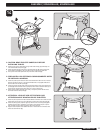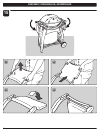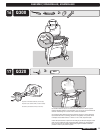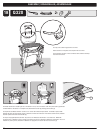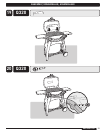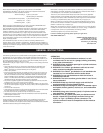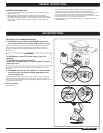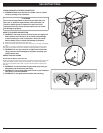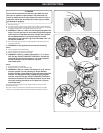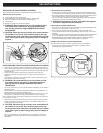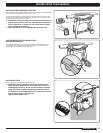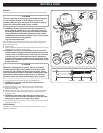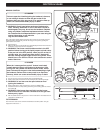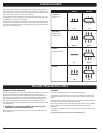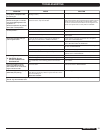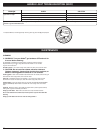Special offers from our partners!

Find Replacement BBQ Parts for 20,308 Models. Repair your BBQ today.

Buy Weber Grill Parts. It couldn't be easier. Find your Weber parts here.
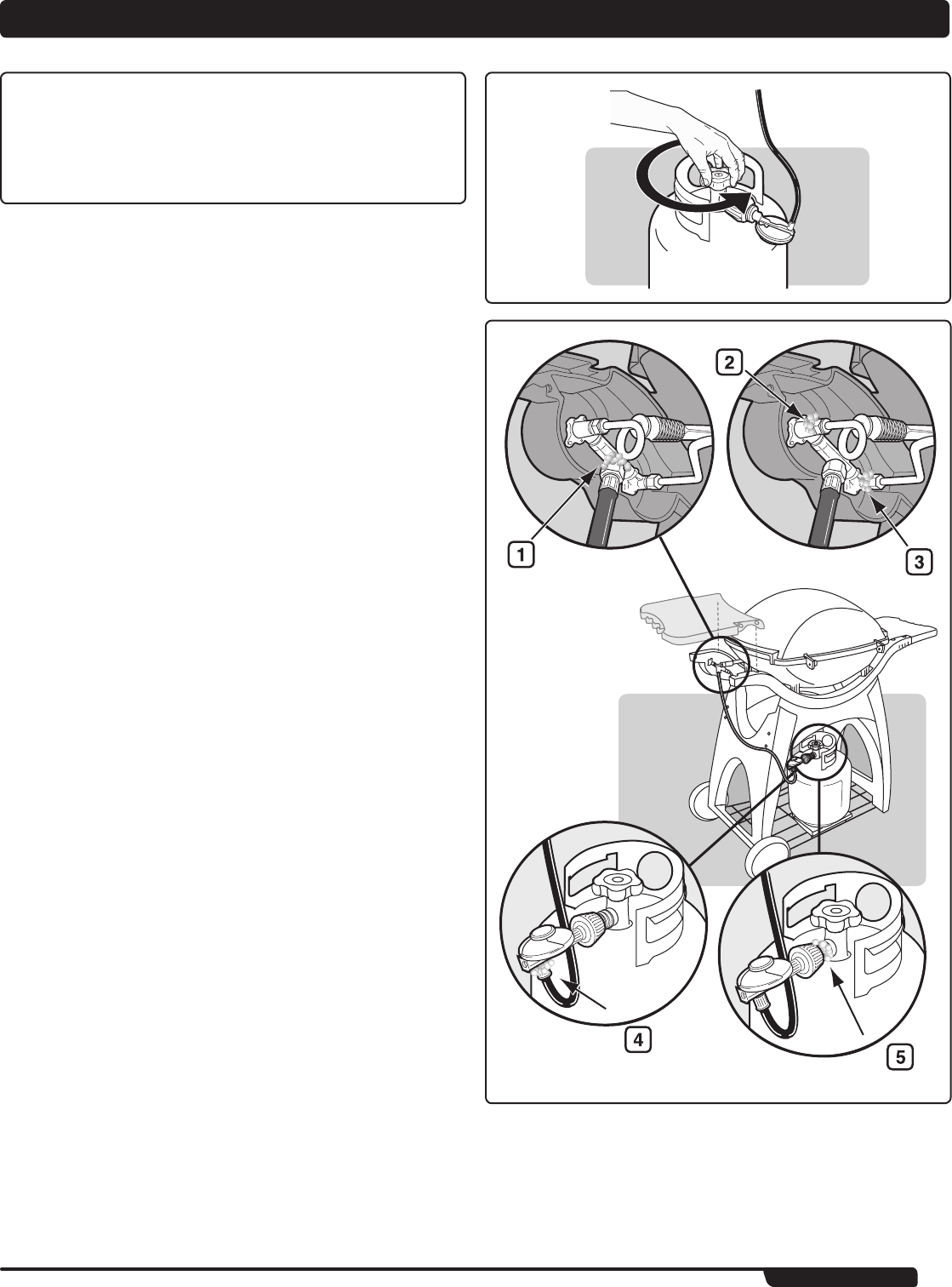
WWW.WebeR.com
®
25
GAS INSTRUcTIoNS
m DANGER
Do not use an open flame to check for gas leaks. Be sure
there are no sparks or open flames in the area while you
check for leaks. Sparks or open flames will result in a fire or
explosion, which can cause searious bodily injury or death
and damage to property.
A) Mix soap and water.
B) Turn on the cylinder valve by turning cylinder valve handwheel counter-clockwise.
C) Check for leaks by wetting the fitting with the soap and water solution and watching
for bubbles. If bubbles form, or if a bubble grows, there is a leak.
m WARNING: If there is a leak, turn off the gas and tighten the
fitting. Turn the gas back on and recheck with the soap and
water solution. If leak does not stop, Contact the Customer
Service Representative in your area using the contact
information on our web site. Log onto www.weber.com®. Do
not use the barbecue.
D) When leak checking is complete, turn gas supply OFF at the source and rinse
connections with water.
m WARNING: Do not ignite burners when leak checking.
Check:
E) Valve-to-Regulator hose connection (1).
F) Valve-to-Outside burner gas line connection (2).
G) Valve-to-Inside burner gas line connection (3).
m WARNING: If there is a leak at connection (1, 2, or 3) turn
OFF the gas. DO NOT OPERATE THE GRILL. Contact the
Customer Service Representative in your area using the
contact information on our web site. Log onto
www.weber.com
®
.
Check:
H) Hose-to-Regulator connection (4).
I) Regulator-to-Propane cylinder connection (5).
m WARNING: If there is a leak at connection (4, or 5), remove
propane cylinder. Do not operate grill. Use a different
propane cylinder and recheck for leaks with soap and water
solution. If a leak persists after retightening the propane
cylinder, turn OFF the gas. DO NOT OPERATE THE GRILL.
Contact the Customer Service Representative in your area
using the contact information on our web site. Log onto
www.weber.com
®
.
When leak checks are complete, turn gas supply OFF at the source and rinse
connections with water.
Note: Since some leak test solutions, including soap and water, may be slightly
corrosive, all connections should be rinsed with water after checking for leaks.
◆



